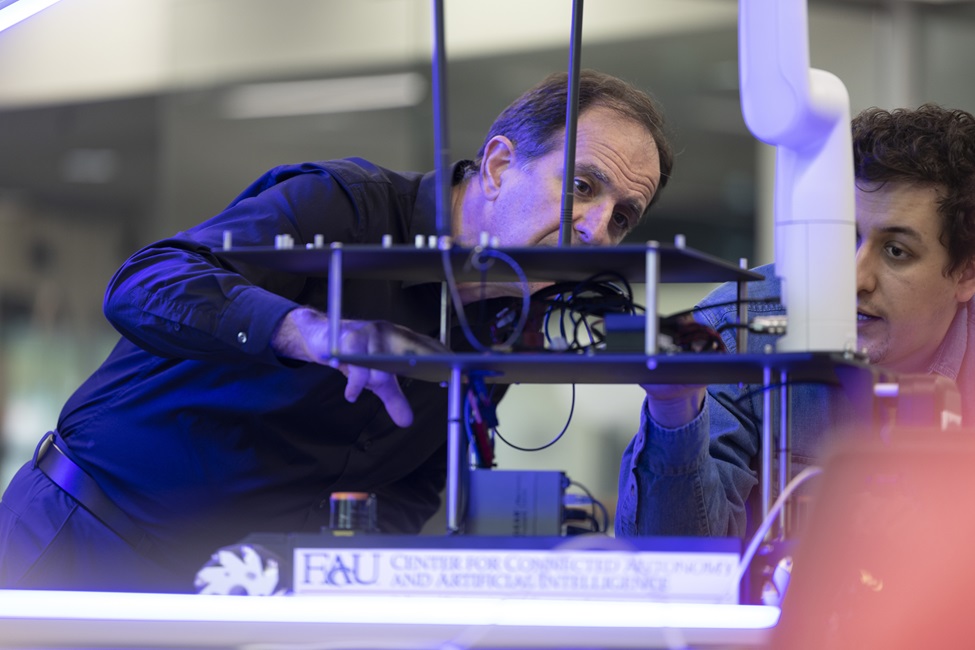Electromagnetic interference (EMI) poses significant challenges in today’s dense IoT and AI robotic environments. With the demand for fast data rates growing, quelling EMI has never been more crucial. Researchers at Florida Atlantic University’s (FAU) Center for Connected Autonomy and Artificial Intelligence (CA-AI) have developed a groundbreaking algorithm to tackle this issue, paving the way for interference-free wireless communications.

Breakthrough Algorithmic Solution
FAU researchers, equipped with a novel algorithmic solution, have dynamically fine-tuned multiple-input multiple-output (MIMO) links. This innovation is crucial for modern wireless systems, such as Wi-Fi and cellular networks. Their method, the first of its kind, optimizes wireless waveforms to navigate crowded frequency bands, enhancing communication channels.
Optimizing MIMO Wireless Waveforms
In field demonstrations, the researchers showcased how their algorithm dynamically optimizes MIMO wireless waveform shapes to manage interference in machine-to-machine communications. This method proved effective in real-world scenarios where interference is a common issue.
Pioneering Communication Groundwork
Dimitris Pados, Ph.D., senior author and director of CA-AI, stated, “We’ve pioneered the groundwork for machines with multiple antennas to determine the most effective waveform shapes for communication.” This breakthrough employs dynamic waveform machine learning across space and time to mitigate EMI.
Validating Efficacy Through Simulations
Researchers conducted extensive simulations to validate their method against various interference scenarios. These simulations highlighted the optimized waveforms’ ability to maintain “clean” communications even in extreme mixed-interference environments.
Promising Future in Autonomous Systems
Stella Batalama, Ph.D., dean of FAU’s College of Engineering and Computer Science, emphasized, “Secure, reliable, and ‘clean’ communications are paramount in autonomous systems. This innovative research addresses interference challenges where multiple devices and networks coexist.”
This breakthrough in quelling electromagnetic interference by FAU researchers marks a significant advancement in wireless communication technology. As demand for faster data rates continues to rise, this innovation offers a promising solution for interference-free connectivity in modern communication systems.
Source: https://www.fau.edu/engineering/news/0624-fau-ca-ai-research-highlighted-in-nature-reviews/



























